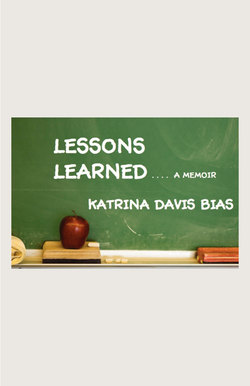Читать книгу Lessons Learned - Katrina Davis Bias - Страница 12
На сайте Литреса книга снята с продажи.
Dr. Kennedy—the go-to man
ОглавлениеWe were knocked for a loop during the last year of Junior High. Without warning, out of the blue, Fred Kennedy appeared in room B3. Just the year before, we received our first Negro teacher in the form of Mrs. Jackson, for which we were pleased. But a man! A handsome man, a well-dressed man wearing cool shoes, an articulate man, a deep-voiced man, a Negro man—this was a bequest from the gods!
Dr. Kennedy came to us through the traditional route taken by Negro educators Negro colleges. He graduated from the Tuskegee Institute but in order to teach in California, he had to take courses again. Most of these southern graduates went to the University of Southern California (USC) for extra coursework. His graduate degrees were also completed at USC.
Dr. Kennedy’s mentorship was by example. He encouraged us, taught us how to stand up for ourselves without the risk of being too aggressive. The minuscule, but precious, space between subservience and uppity-ness was where we needed to operate. These are some of the principles I remember:
One should make an articulate request rather than a demand because a demand assumes power and puts you in the uppity side of the space.
Questions should be answered thoroughly and with thoughtfulness, as a subtle means for negating misconceptions others may have made about you.
Don’t bite the hand that feeds you but explore other sources for your nourishment.
Plan and prepare.
He quickly rose from teacher to vice principal, to principal, to assistant superintendent, to superintendent in our school district, being the “first” in most positions. All along he kept in touch with students, inviting us to events and occasions he thought would benefit us. He and his wife mentored, housed, and supported scores of students over the years. While working as a consultant up and down the state, Dr. Kennedy ventured out by opening a traffic school, a lucrative business in which he hired former students and networked with court traffic schools. During this time he continued to consult with school districts throughout the state, resolving their problems in affirmative action, equal opportunity for minorities and women, personnel issues, and searches for superintendent. Any black educator looking for a high administrative position always contacted Dr. Kennedy. He could put you in touch with the right person, make a phone call on your behalf, or let you know what they were looking for.
An interesting and surprising fact is that when Art and I were dating, his Fraternity Team coach was Fred Kennedy. The “Frat Series” was a spectacular social and athletic event in Los Angeles that drew hundreds of people to see four black fraternities compete against each other in a basketball tournament over a month’s time. It was both a fashion show and an exhibition for those who wanted to be seen; who you were wearing on your arm was as important as what you were wearing. On the basketball court, it was a showcase for the most skilled players who were no longer playing in college, including future professional players. I went down to tell Dr. Kennedy hello after the game, and he was surprised to see me. He expressed his pleasure that I was dating Art, vouching for him as a gentleman. That endorsement has remained true, for both Art and Fred are true gentlemen.
We decided to have a tribute for Dr. Kennedy for his eightieth birthday, rather than wait to give a memorial after his death. We thought it would be better if he saw and heard from all the people who thought he was wonderful.
The room was filled with two hundred educators, entertainers, coaches, elected officials, and various other professionals. There were two National Champion basketball coaches, three actors who had starring roles in recent films, a score of professional athletes, many local and State and National elected officials, seven school superintendents, a large number of teachers, and many former students and players. It looked like a Who’s Who of Black Californians. We listened to tribute after tribute of how Dr. Kennedy had made a difference. I was asked to speak on his influence on his earliest students and related our Junior High experiences with Dr. Kennedy.
Very recently we celebrated Dr. Kennedy’s ninetieth birthday at a luncheon with about seventy people attending. We were his friends, colleagues, and former students. After a nice luncheon, he invited us to gather around him, saying this was “his time”. He introduced the entire room with a story or mention of an accomplishment. Even though it took an hour or so, it was amazing to witness his memory and demonstration of his sharp mind.
I can’t say enough express the appreciation of our mentor, Fred Kennedy.
Dr. Fred Kennedy, at my sixty-fifth Birthday Party
